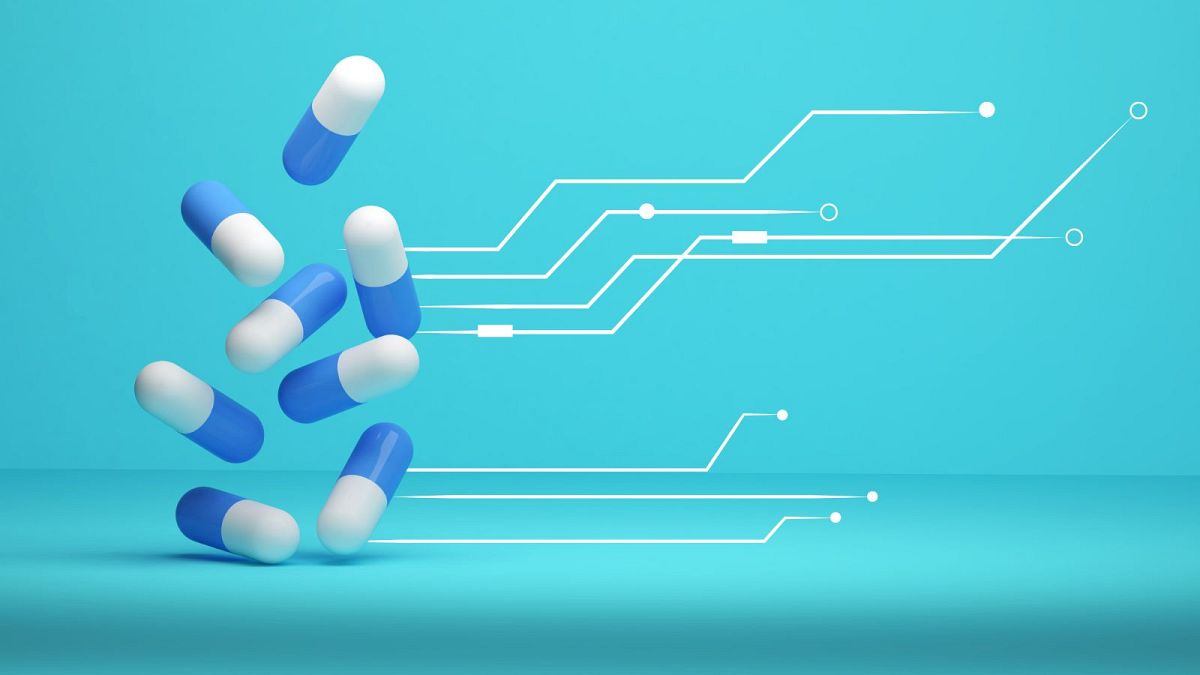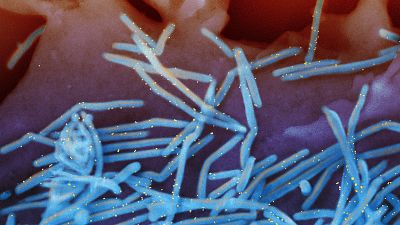Biotech startups are using AI to speed drug discovery, revolutionising pharmaceuticals. Iktos aims to halve pre-clinical drug discovery time.
The pharmaceutical industry is embracing artificial intelligence (AI) with a rise in startups and biotechnology companies whose projects promise to revolutionise drug development.
"In five years, all small molecules will have been discovered using generative AI methods," said Yann Gaston-Mathé, CEO of the startup Iktos.
Founded in 2016, the startup, with approximately 60 employees in the Paris region, uses AI to design cancer drugs.
Iktos aims to "halve the time it takes to discover a pre-clinical drug candidate," which has not been tested in humans, according to Quentin Perron, its chief strategy officer.
Time is one strategic issue for the pharmaceutical industry.
"It takes twice as long to develop a drug as it does to build an aeroplane," said a senior executive in the French pharmaceutical industry.
Developing a drug, for instance, involves identifying chemical compounds with characteristics capable of achieving a desired therapeutic effect.
"This is like searching for a solution in an almost infinite chemical space since we consider that the number of molecules that can be synthesised is on the order of 10 to the power of 60, nearly the number of atoms in the universe," said Gaston-Mathé.
The drug discovery phase precedes the clinical development phase during which the drug candidate is tested in humans.
It aims to identify potential promising drugs that can be further developed. This phase takes up to five years and requires an average investment of nearly $100 million (€92.5 million) per drug candidate.
'Equivalent to about 30 chemists in the lab'
Traditionally, the medicinal chemist creates the compound and tests it in the laboratory, but AI could change the process.
While there are currently no statistics to compare traditional methods with those carried out with generative AI, big pharmaceutical companies are collaborating with biotechs and startups focused on the technology.
Among the most recognised are the British biotech Excensitia, the American companies Schödinger and Atomwise, Insilico Medicine based in Hong Kong, and BenevolentAI registered in Amsterdam.
Sanofi has recently partnered with the French startup Aqemia in drug discovery through AI.
Iktos hopes to soon join the ranks of the major players, with, at the core of its strategy, AI solutions integrated into a robot.
The first AI system is like a brain that feeds on biological data to create a molecule that "ticks all the boxes": one that is effective at the lowest possible dose, safe, stable, patentable, and able to be synthesised.
"It takes a few hours," said Perron.
Then, another AI intervenes and can provide the recipe to "move on to real powders" in a few seconds by drawing on millions of chemical reaction publications and patent data.
Next, the robot transforms into a production tool, capable of synthesising 96 compounds at a time.
The process can be repeated endlessly to find even more promising compounds.
It's still a small-scale operation but "equivalent to about 30 chemists in the lab," said Perron, estimating that this initial development phase "takes between one and two months to produce 100 molecules in parallel" in the robot, while it takes "between two and three months" in a traditional laboratory.
It's time saved that allows the medicinal chemist "to focus on value-added tasks, read specialised literature, see what the competition is doing instead of cleaning the bench, sweeping the lab, or looking for where to get the product," said the expert.
However, it will take a bit longer to see the emergence of drugs from AI, considering that, according to the Union of Pharmaceutical Companies (Leem), it takes more than 10 years to develop a drug and that out of 10 drug candidates, only one succeeds in being commercialised.



